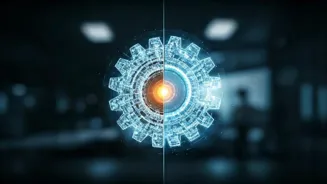The Changing Landscape
The workplace is transforming, and the traditional path to success is being reevaluated. Ryan Roslansky, the CEO of LinkedIn, has brought to light a significant
shift in how employers view qualifications. He suggests that the emphasis on skills and adaptability will increase in the upcoming years. This shift comes at a time when AI is becoming more prevalent in various sectors. The concept of learning and applying skills, especially in a quick and adaptive manner, is gaining momentum. The old belief that a college degree is the main key to success is giving way to one in which practical abilities and the capacity to learn are viewed as essential.
The LinkedIn Perspective
LinkedIn, a platform connecting professionals worldwide, is at the forefront of this transition. Roslansky's perspective reflects the data the platform sees daily. He emphasizes the growing importance of skills over degrees, implying that employers increasingly prioritize what a candidate can actually do. He suggests that the workforce will become even more dynamic with an evolving job market. This view indicates that an individual's capacity to adjust and acquire new skills will be crucial for success, surpassing the value of a traditional degree. Companies need employees who can learn quickly and adapt to ever-changing technologies, particularly AI.
Adaptability Takes Center Stage
Adaptability has evolved into a key requirement. It is more important than ever for workers to be able to shift with the new skills that are needed to accomplish the job. This ability to learn and apply new skills quickly is becoming more valued than what a person has studied in school. For those looking to get a job, it's more important to highlight real-world experience. This suggests that the capability to adjust to change, show a drive to learn new skills, and display one’s practical experience will become more significant.
AI and the Workforce
The rise of AI is accelerating the shift toward a skills-based economy. As AI automates various tasks, the demand for specific, specialized skills is intensifying. This means workers need to learn how to use AI tools, manage AI-driven systems, and also bring distinct human skills to the table. The core of human competence is the capability to handle complex problems, have critical thinking abilities, and handle creative tasks. It is becoming more vital for professionals to hone these human skills to remain valuable in a technology-driven world. This shift requires employees to become lifelong learners, always updating their skills and knowing about new technologies.
Implications for Employers
For employers, this shift presents a new set of challenges and opportunities. Organizations need to rethink their hiring processes and recognize potential in people who lack formal credentials. A focus on skill assessment and the ability to adapt will become key for successful hiring. Companies will also need to create more ways for employees to keep up their skills through on-the-job training and ongoing education. This may include developing internal training programs, offering chances to learn new skills, and giving support for certifications. By concentrating on skills and adaptability, companies can build a workforce that can respond to change, and drive innovation.
Implications for Job Seekers
Job seekers also need to adapt to the changes in the job market. Those looking for a new job should focus on obtaining practical skills, and demonstrate their abilities. Showcasing a diverse skill set that is relevant to current industry demands is crucial. Individuals should invest in courses, certifications, and other training programs that provide demonstrable skills. Networking and creating a strong online presence can also help job seekers showcase their skills and experiences. Creating a strong online profile and showing skills in the real world can also help. Job seekers should also be prepared to learn throughout their careers, adapting and upgrading skills to remain competitive.
The Future of Education
The role of higher education is also being reconsidered. While a degree might not be the only factor for success, it doesn’t lose its value. Colleges and universities should adapt their programs to match the evolving demands of the workforce. This may involve integrating more practical training and industry-specific skills into the curriculum. The need to improve practical skills through internships and projects is growing. It will also require a focus on teaching skills like problem-solving, critical thinking, and adaptability, which are essential in the age of AI and other technologies. The future of education could involve a mix of traditional academic learning and practical, skills-based training to create a more effective workforce.











![[WATCH] T20 World Cup 2026: Gautam Gambhir hosts dinner for Team India players ahead of Namibia clash](https://g-mob.glance-cdn.com/public/fc/image/7gXS1xdhs5Q0.webp)



